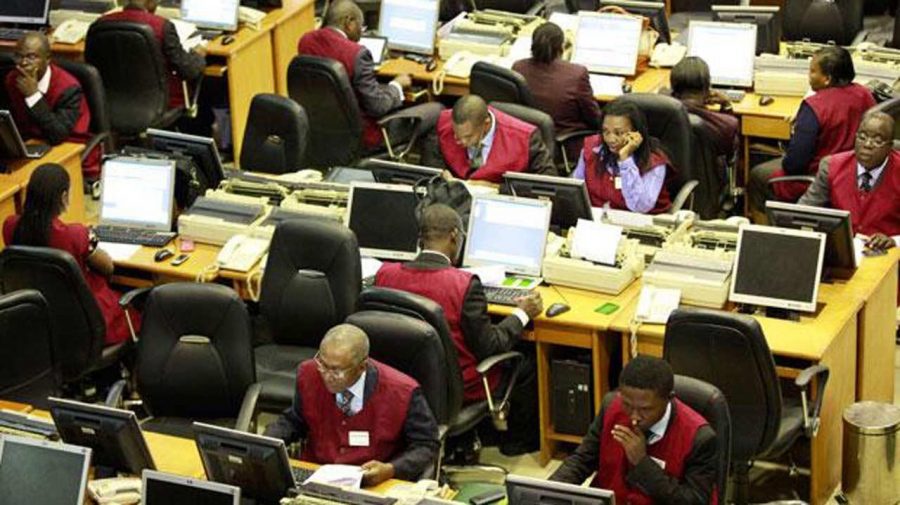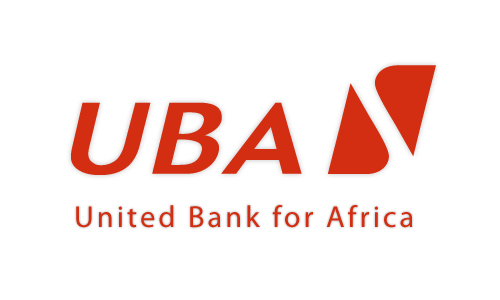By VETIVA
What shaped the past week?
Global: – It was a mixed week for global markets, as investor optimism over a potential coronavirus vaccine from drug markers Moderna and AstraZeneca, as well as the easing of the lockdown in the U.S., drove global markets higher. Moderna Inc. announced on Monday, that it is in the early-stage trials of a vaccine development, adding that they expect to begin the final testing stage in July. Meanwhile, U.K. based AstraZeneca announced on Thursday, that it secured its first agreements for 400 million doses of a COVID-19 vaccine it is testing, bolstered by a >$1 billion investment from the U.S. Biomedical Advanced Research and Development Authority vaccine agency. The drug-maker expects to produce and deliver the vaccine, starting fall 2020. Furthermore, White House economic advisor Kevin Hassett, stated that he expects “pretty strong” second half of the year, as U.S. President Donald Trump signed an executive order to help the country’s labor market curb the coronavirus impact and ensure job growth. On the European front, The European Commission and the European Council agreed on a €100 billion unemployment fund, as nations in the region started reopening as well. Retail sales in the U.K. for April plunged 18.1%, as the virus induced lockdown weighed on consumer activity in the period. In addition, employment numbers revealed a 70% increase in unemployment claims by U.K. workers, while construction activity in the Eurozone, plunged 14% in March, driven by a downturn in manufacturing activity in Germany. On the Asian front, Japan announced that it will be lifting the state of emergency in Osaka, Kyoto and Hyogo on Thursday. Meanwhile, the People’s Bank of China (PBOC) held interest rates unchanged at 3.85%, as investors remained focused on the ongoing dispute between the U.S. and China, over how the latter handled the outbreak.
Domestic Economy: With the coronavirus disrupting global trade and economic activity, oil demand fell to its lowest level in 21 years. Crude prices are down 60% y/y, as nations around the world imposed mobility restrictions to contain the spread of COVID-19. Nigeria, whose economy is largely tied to developments in the oil space, saw its Q1’20 oil revenue fall short of target by 11.77% to ₦940.91 billion. This was because the nation slashed prices on its benchmark Bonny Light crude grade, as it struggled to find off takers. The Finance Minister, Zainab Ahmed, who briefed reporters yesterday, highlighted that the shortfall in oil revenue could hinder the nation’s ability to fund critical infrastructure development projects. She also added that a slowdown in economic activity could result in a spike in unemployment, exasperating poverty levels, as the economy could contract by as much as 8.94% without a fiscal stimulus package. However, the National Economic Council (NEC) is working on implementing measures aimed at cushioning the impact of the downturn on the economy. In addition, a rebound in oil prices is expected in the second half of the year, as demand picks up with a gradual re-opening of economies. This should support a moderate recovery in economic growth in Q3’2020, and filter into Q4’2020.
Equities: The bulls dominated trading activity in the equities space this week, as a moderate recovery in oil prices helped improve sentiment in the market. The ASI gained 559bps w/w, driven by gains recorded in the Banking (+724bps w/w) and Industrial goods (+15.45% w/w) sectors. In the banking space, gainers were led by tier-one lenders, ZENITHBANK (+971bps w/w) and UBA (+880bps w/w), while BUACEMENT (+23.42% w/w) led all gainers in the Industrial Goods space. A surge in UNILEVER (+29.53% w/w), saw the Consumer Goods (+89bps w/w) sector close in the green, while gains recorded in MOBIL (+20.92% w/w) also pushed the Oil & Gas index over the green line. Outside of the major indices, the performance of the market was further aided by an uptick in MTNN this week (+502bps w/w). For the week, volume and value trade improved 86.05% and 93.00% respectively.
Fixed Income: On Wednesday, the Debt Management Office (DMO), conducted a bond auction where it offered ₦60 billion and sold ₦296 billion across the three maturities at stop rates of 9.20%, 11.70% and 12.60% Meanwhile, trading activity in the secondary market remained mixed this week, as market participants continue to patronize OMO notes in lieu of alternative investment opportunities. In the OMO space, average yield eased 255bps w/w driven by buying interest at the mid-long end of the curve. On the other hand, a moderate recovery in crude prices was enough to spark increased interest in the bond space, where the average yield on benchmark bonds eased 18bps w/w. Furthermore, despite the low yield environment persisting in the NTB space, trading activity was positive this week, as yields moderated 13bps on average.
Currency: The Naira appreciated ₦0.39 w/w at the I&E FX Window to settle at ₦385.94 and depreciated ₦10.00 w/w to close at ₦455.00 against the dollar in the parallel market.
What will shape markets in the coming week?
Equity market: Just as expected, we saw a mixed trading session on Friday, as investors continued to take advantage of some cheap counters while taking profit on some other tickers that has gained substantially in recent times. However, taking a cue from the improving events in the global space as well as the positive market breadth posted (1.80x), we expect the market to continue on its upward trend (though at a slower rate) upon resumption from the holiday on Wednesday.
Fixed Income market: We expect sentiment in the crude space, to turn bearish this week, following China’s plan to not issue a guidance on its GDP target for 2020 as it battles the economic shocks of the pandemic. As such, we expect to see limited interest in the bond space. However, the level of system liquidity and incoming maturities will continue to support buy-side activity in the OMO space.
Currency: We expect the naira to remain largely stable across the various windows of the currency space as the CBN maintains interventions in the FX market.
Focus for the week
April 2020 Inflation – Inflation accelerates amid pandemic risk, Ramadan arrival
In the latest report from the National Bureau of Statistics (NBS), the overall consumer price index – a measure of the average change in prices over time of goods and services purchased by consumers – was up 12.34% y/y in Apr’20 from 12.26% y/y in Mar’20. Retail inflation inched higher on the back of a faster rise in both food and core prices. Annual food inflation accelerated to 15.03% y/y in Apr’20 (Mar’20: 14.98% y/y) while core inflation printed at 9.98% y/y (Mar’20: 9.73% y/y). Prices of food items like bread, fish, tubers, vegetables & fruits and bread & cereals were the main drivers of inflation in Apr’20.
COVID-19 price premiums inflate core prices y/y
Save for the Housing, water, electricity, gas and other fuel sub-index, all the other sub-indices recorded a faster rise in prices compared to Mar’20. However, core prices rose y/y at a faster pace (+25bps) than food prices (5bps). This was due to a faster rise in prices in some COVID-19 prone sectors (health, transport and restaurant & hotels) compared to food prices. The faster rise in prices in the vulnerable sectors reflects price premiums for services, amid steady demand, due to increased risk associated with rendering those services. Specifically, we note that the prices of health and transport services rose 23bps and 22bps m/m respectively in Apr’20.
Ramadan arrival, lockdown pressure m/m food inflation
On a monthly basis, inflation rose by 18bps to 1.02% m/m (Vetiva estimate: 0.82% m/m) on a faster rise in food prices – compared to core prices. Food inflation rose by 24bps to 1.18% m/m (Mar’20: 0.94% m/m) as the demand for essential food products increased with the arrival of Ramadan. Across sub-nationals, states that implemented some form of mobility restriction (including Lagos, Kaduna, Akwa Ibom and Ondo) early in the month recorded steeper rises in food inflation – above the national average-, reflecting disruption to food supply chains and its attendant impact on food prices.
Inflationary pressures mount on supply disruptions
In the current month, we expect the headline inflation to print at 12.43% y/y, due to an anticipated rise in both food and core inflation. We expect food inflation to rise further to 15.09% y/y, as mobility restrictions persisted in May with more states involved from the start of the month. We also expect core inflation to inch higher to 10.07% y/y, as we anticipate that the pressure on transport and health service prices will persist through the month. In 2020, we expect the average inflation to inch higher to 11.86% y/y (2019: 11.39% y/y), on the back of a faster rise in both food and core prices. This is stronger than our previous estimate of 11.44%, as inflationary pressures continue to mount on pandemic-induced supply disruptions and impending price increases. We expect food inflation to come in higher at 14.10% y/y (2019: 13.73% y/y) as mobility restrictions – aimed at containing the spread of the virus – continue to disrupt food distribution, resulting in artificial scarcity and pressuring food prices. Also, we expect core inflation to average 9.86% y/y in 2020, higher than 9.16% y/y recorded in 2019. Core price pressures could stem from the continued pressure on health and transport service prices, as the local outbreak persists. Also, a much stronger recovery in oil prices could prompt an upward review of the pump price of Premium Motor Spirit (PMS), contributing to inflationary pressure across a number of other sectors. There are also indications that electricity subsidy will be removed by Jul’20, further adding to our expectation of accelerating core inflation in 2020. Taking the build-up in inflationary pressure into consideration, we expect the Monetary Policy Committee (MPC) of the Central Bank of Nigeria (CBN) to maintain its current monetary policy stance, amid a rise in external and fiscal risks. A rate cut could be counterproductive for inflation, amid a souring economic outlook, while a hike could undermine ongoing efforts to stimulate growth. We believe the CBN will be more focused on the transmission of its unconventional policies to the economy, rather than taking action.
Whilst reasonable care has been taken in preparing this document to ensure the accuracy of facts stated herein and that the ratings, forecasts, estimates and opinions also contained herein are objective, reasonable and fair, no responsibility or liability is accepted either by Vetiva Capital Management Limited or any of its employees for any error of fact or opinion expressed herein.

 Featured5 days ago
Featured5 days ago
 Boss Of The Week2 days ago
Boss Of The Week2 days ago
 Headline4 days ago
Headline4 days ago
 Middle East3 days ago
Middle East3 days ago
 The Oracle4 days ago
The Oracle4 days ago
 Islam4 days ago
Islam4 days ago
 News5 days ago
News5 days ago
 Opinion3 days ago
Opinion3 days ago













